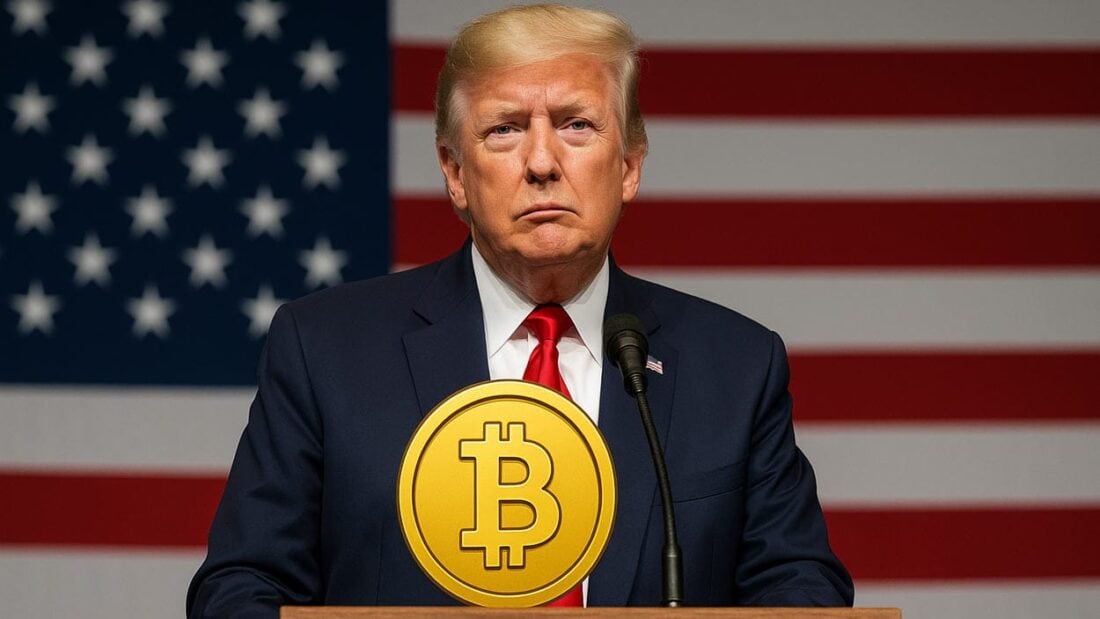The U.S. House has passed the GENIUS Act, marking America’s first federal stablecoin regulation, with President Trump poised to sign it into law.
Key Takeaways
- 1The House passed the GENIUS Act with a 308-122 vote, creating the first US stablecoin law.
- 2President Trump is expected to sign the bill after pushing Republicans to support it.
- 3The law mandates 1:1 reserves for stablecoins and monthly transparency disclosures.
- 4It’s a major win for crypto firms, which spent $119 million backing pro-crypto lawmakers.
The crypto world is getting its first real law. The GENIUS Act just cleared the House and is heading straight for President Trump’s desk. It’s not just another tech policy update. This could reshape how digital dollars work and who controls them. Ready or not, stablecoins are stepping into the spotlight.
GENIUS Act Passes with Bipartisan Support
In a historic move, the U.S. House of Representatives passed the GENIUS Act on Thursday, establishing the first federal regulatory framework for stablecoins. The vote passed with strong bipartisan support, finishing at 308 in favor and 122 against. This landmark bill now awaits President Donald Trump’s signature, which is expected in the coming days.
Stablecoins are digital tokens designed to maintain a 1:1 peg with the US dollar, offering traders and institutions a way to move money quickly without using traditional banks. The new law will apply strict rules, requiring stablecoin issuers to hold equivalent reserves in cash or short-term Treasury bills and to disclose their holdings every month.
Crypto Industry Cheers a “Defining Moment”
The crypto industry, which spent over $119 million supporting pro-crypto candidates in the 2024 elections, welcomed the vote as a long-awaited breakthrough.
Dante Disparte, Chief Strategy Officer at Circle, called it a “defining moment for the future of money” that reinforces U.S. dollar dominance globally. Likewise, Summer Mersinger, CEO of the Blockchain Association and a former CFTC official, hailed the bill as a “defining moment in the evolution of U.S. digital asset policy.”
The bill opens the door for banks, retailers, and tech companies to issue their own compliant stablecoins, a move that could disrupt credit card networks and payment processors.
Political Drama and a Historic House Session
The road to passage was rocky. On Tuesday, a dozen conservative Republicans blocked the bill, insisting it include a ban on the Federal Reserve creating its own digital dollar. The standoff led to a 9.5-hour negotiation, marking the longest House vote in modern history. A compromise was reached when leaders agreed to include the CBDC ban in a future defense bill.
Despite the resolution, some Democrats expressed concern over Trump’s involvement. Maxine Waters criticized the bill, suggesting it could personally benefit Trump’s family business, World Liberty Financial, which issues a stablecoin called USD1.
A Boon for Markets, but Questions Remain
Supporters argue the GENIUS Act will boost the market for stablecoins, which currently stands at $238 billion, with projections it could hit $2 trillion under this new structure, according to Treasury Secretary Scott Bessent.
The Act also includes:
- Strict anti-money laundering rules
- A ban on interest payments to stablecoin holders
- Permission for commercial entities like JPMorgan and Amazon to enter the stablecoin space
While two other crypto bills, the Clarity Act (market structure) and a separate CBDC ban bill, also passed the House and await Senate review, the GENIUS Act is the closest to becoming law.
CoinLaw’s Takeaway
I think this is massive. For years, we’ve watched crypto sit in a legal gray zone. Now, we finally have a federal law that tells stablecoin issuers what’s okay and what’s not. It’s about legitimacy, transparency, and yes, opportunity. Whether you’re a fan of Trump or not, this bill shows that crypto is no longer fringe, it’s part of the financial system now. I’m especially intrigued by how this could shake up payments if big players like Amazon join the game.


































































